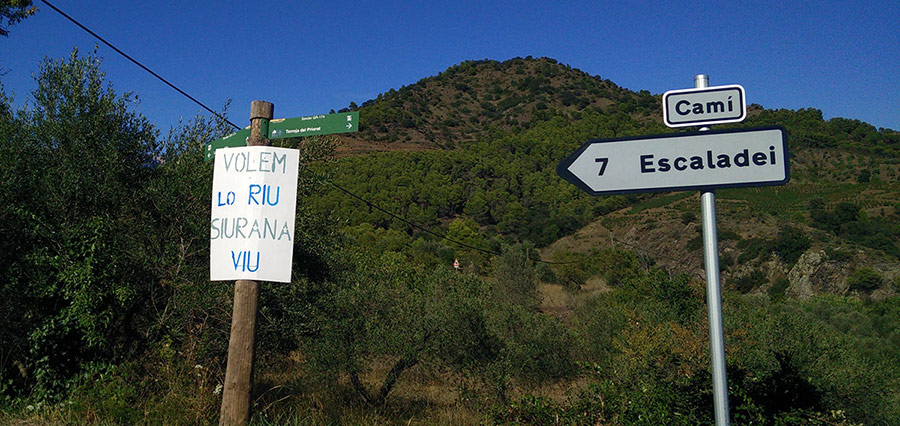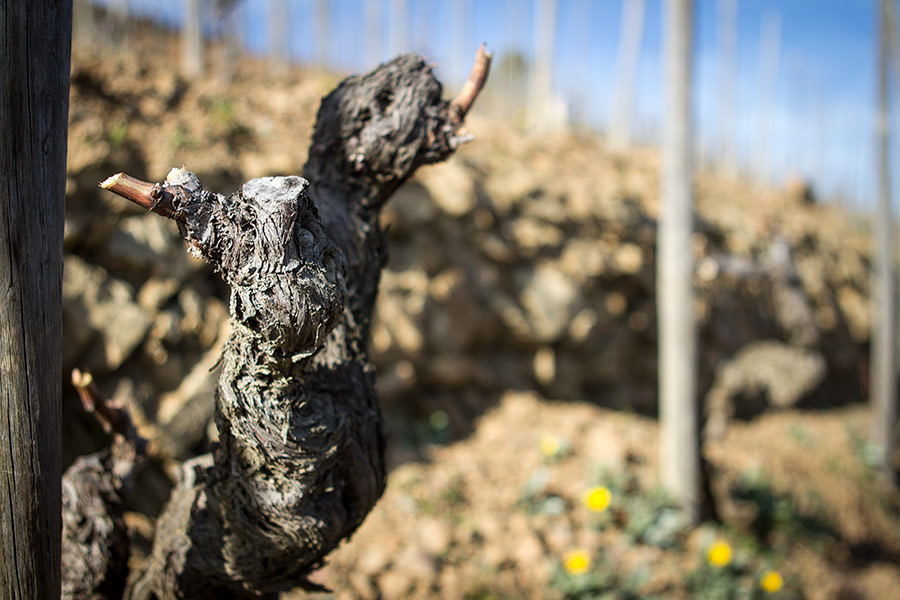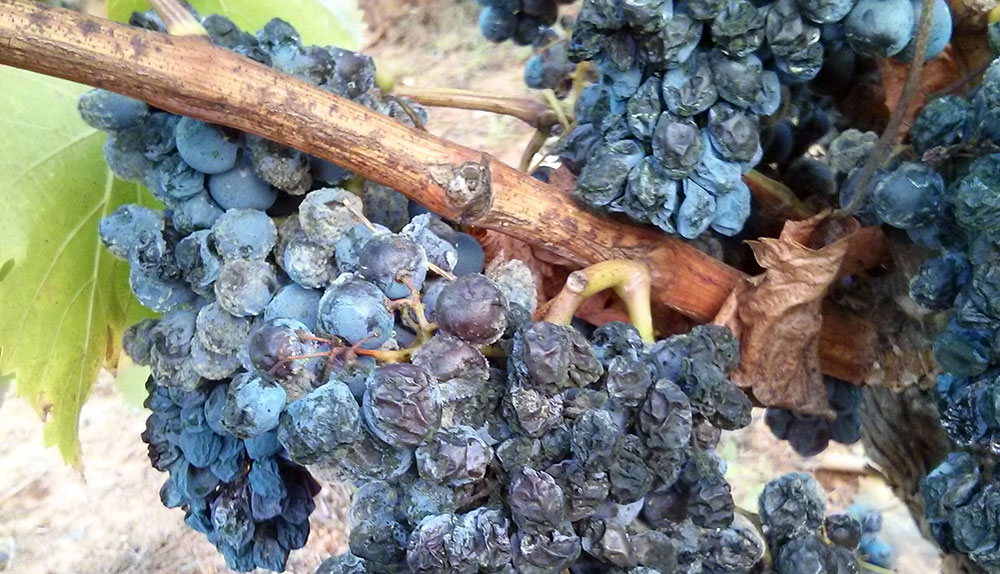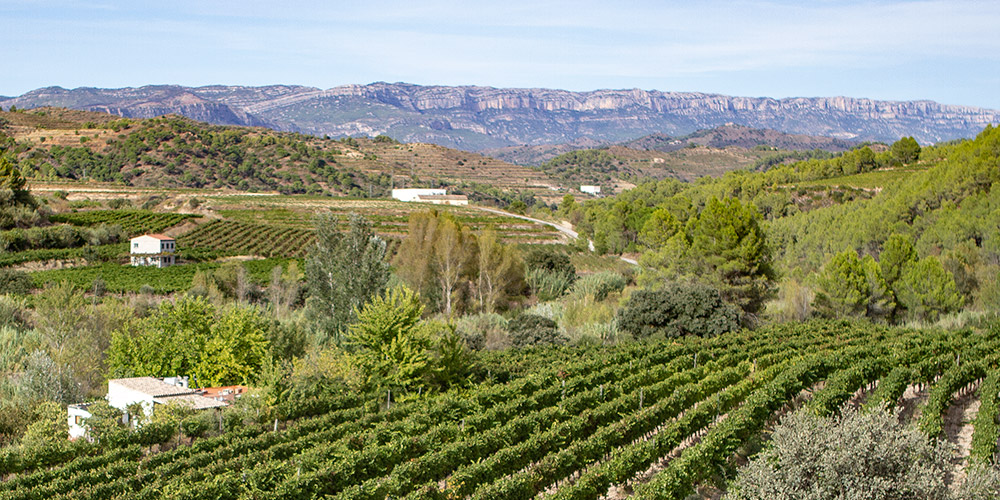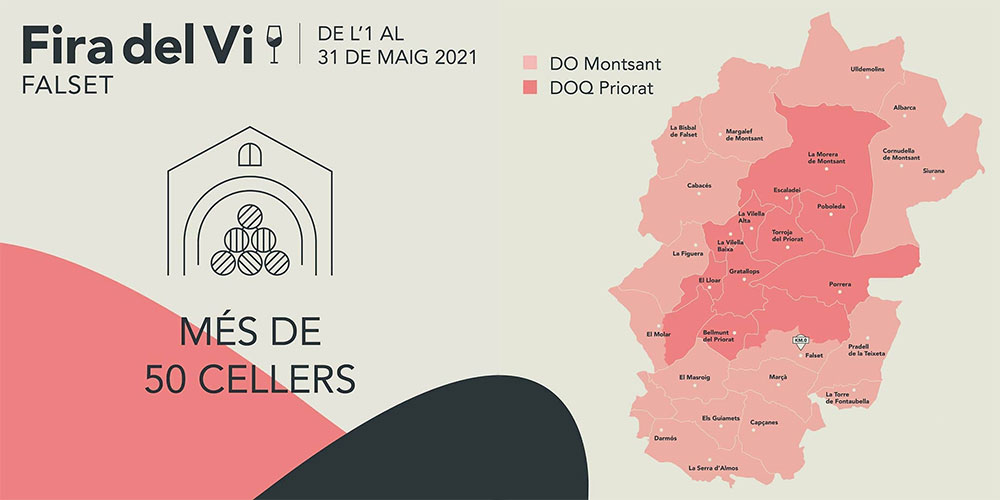Anyone who visits the winemaking region of DOQ Priorat in Catalonia these days will notice a number of handmade signs dotting the region that state, “Volem lo riu Siurana viu” which in Catalan means, “We want the Siurana River alive”.
Originating in the Prades Mountains, the Siurana River snakes across the county of Priorat passing through both the DOQ Priorat and DO Montsant appellations. There is a reservoir which wraps around the scenic clifftop village of Siurana from which the river takes its name after which there is a diversion near the next village of Poboleda. From this point on the river is dry in Priorat as the water is piped out to the neighboring county of Baix Camp and stored in the Riudecanyes Resevoir. This diversion was built in 1934 despite heavy local protests but ultimately Baix Camp, with its much higher population (currently 190,000 vs. Priorat’s 9,000) won out and the diverted water was initially used for agricultural irrigation in the region.
As time has gone on, a diversion of the Ebro River was built that made the Riudecanyes Resevoir mostly unnecessary. Raül Romeva, then a member of the European Parliament with ICV (part of the European Greens), took the case to the European Council in February, 2014. He argued that the diversion was causing untold ecologic damage to the Priorat region as 96% of the river’s water is diverted outside the county. The council ruled favorably for the case that Romeva had brought and stated that an adequate level of water for the Siurana River needed to return by 2015 to restore the biosphere. But this hasn’t happened yet apparently due to the simple question of cost in that water from the reservoir costs 0.16€ a liter while that from the Ebro, 0.25€.
While this group fighting for the return of water to the Siurana River has existed since 2010, it was the flaunting of the European Council’s ruling by the Riudecanyes Irrigation corporation along with increasingly hot vintages that have fired them up over the summer–a summer that broke temperature records in the region. They’ve formed an association comprised of members from the affected villages and elected Jordi Aixalà as the spokesperson of the group.
Jordi was the mayor of Torroja for the last 12 years and is also a local winemaker at his Aixalà Alcait winery. He states, “My father recalled that the river would only be dry in summer after 3-4 years of drought. From the 1980s onward the river has been dry for the vast majority of the year. This lack of water has heavily increased the overall humidity in Priorat and has been detrimental to curb the rising temperatures in the region overall as we’re lacking this natural climactic regulation we would receive from the river. It’s been detrimental to the winemaking, but also agriculture in general as there is no possible way to grow any crop that needs regular irrigation.”
Anyone familiar with viticulture in Spain knows that both humidity and hot temperatures can be extremely problematic, especially in the case of Grenache (which comprises 40% of the vineyards plantings in DOQ Priorat & DO Montsant) where it can make for unbalanced, highly alcoholic wines. But beyond this, winemakers in Priorat are especially attached to their local environment as shown by Sara Pérez of Mas Martinet (which has the Siruana River wrapping around her winery) and whose Els Esçurons vineyards was scorched by a lighting strike fire during the summer. She says, “We can replant the vines that we lost, but we’re very concerned about the damage to the forest that surrounds the vineyard which will take decades to recover.”
This overall concern for the biodiversity of the region is what attracts the winemakers and makes the highly-regarded wines but it is also what mobilizes those who live there to fight what has been ordained as an illegal theft of the water that flows through their territory. The hope is that they can raise enough awareness via their social media campaigns (here & here) to have the issue recognized by the Catalan government and ultimately right the damage that has been done.
